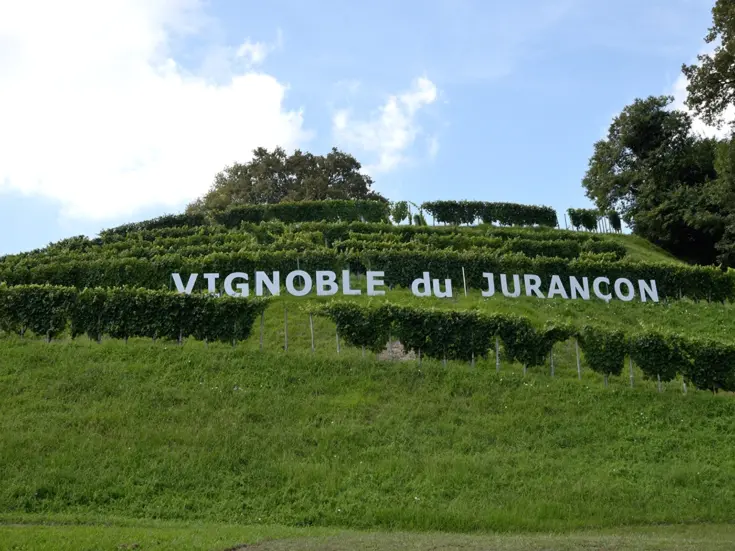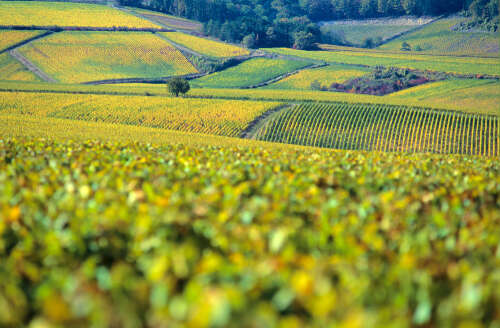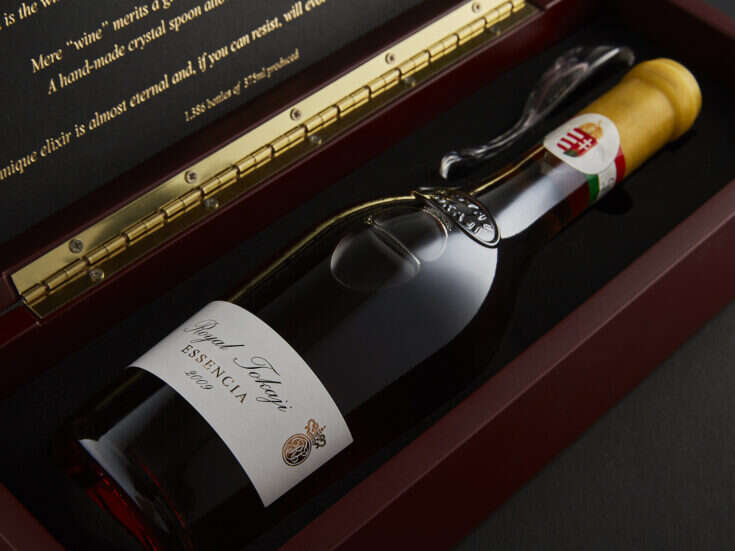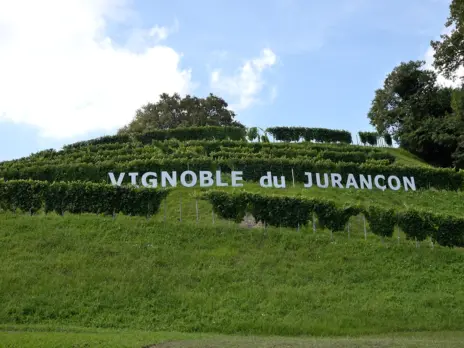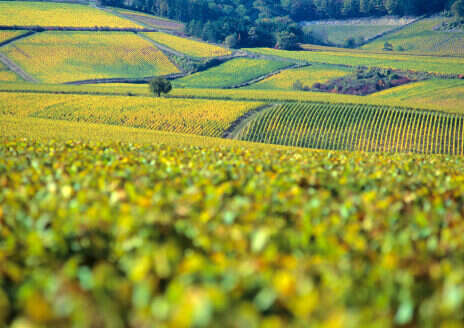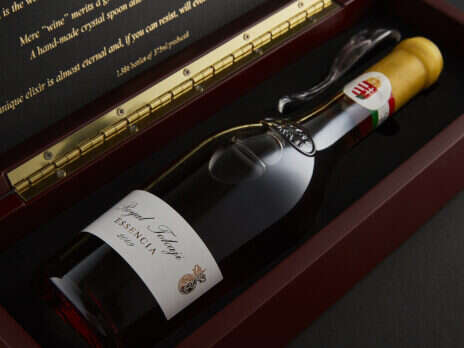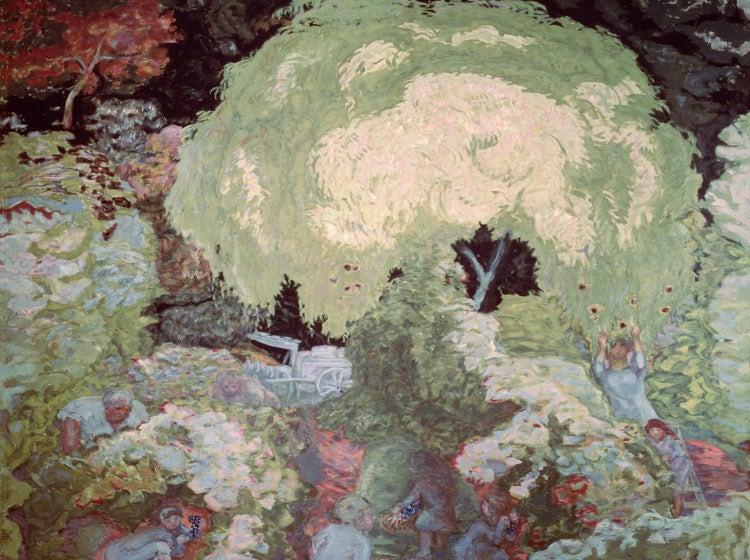
It was a short stroll across the village to meet with Heidi Schröck and taste her new vintage. Heidi makes Furmint. In fact she owns ten percent of all the Furmint planted in Austria, and Furmint is a wine I happen to love helplessly. It is maybe the most purely beautiful of all the wines I know that aren’t actually great. My professional palate (such as it is) would not insist the wines are magnificent, but my little me-soul is very sure it shouldn’t have to live without this exquisite being, even if it is ancillary. The new vintage was subtle and entirely haunting; quince and osmanthus and bread-dough; satiny and allusive and intuitive and meditative, at least to the dream-self I brought to the rim of the glass. It was indirectly salty with a hint of talc, seeming to offer a sense of something you know and yet have missed, as if you’d been at sea and returned at the very end of Spring as the blossoms fell from the bushes and the trees; it’s the wine of the tristesse of everything known and lost, the rarest sweetness, and yet it lingers as if to console you.
Being with a wine like this is a lesson in how to live and what to care about. I happen to buy it and sell it, but most important is simply to be there so it can find you.
Most places become less vivid as we grow more familiar with them, but Rust is one that actually grows more curious and strange, at least to me. The Nahe region of Germany is another. When I was there in June 2012 with a film crew it felt like a soft green world one didn’t so much find as slip accidently into. Even the flowers and birds felt esoteric. The wines, which one struggles to describe, give a sense of forming a hologram of flavor on the palate, that shifts and alters with each instant of thought and gaze. You feel like you’re eating food cooked by someone who has every spice in the world in the kitchen and knows exactly how to use them.
For me the place is entirely mystic. It’s like the Galapagos Islands of wine, some place where strange birds and turtles roost and peer out from heavy-lidded eyes. If you stay there long enough it wouldn’t surprise you when your hair began changing color. The wines can have an odd shamanic force. I start to wonder, am I just slipping off the rails in my old age, or have things pared away enough to allow me to hear what I couldn’t before?
The eager young man who started in the wine business in the early ’80s was buying from and selling to people either his (my) age or older, but this has changed entirely, and now most of my suppliers and customers are younger than I. They are very fine people, and I respect them for the aplomb with which they navigate the screwy world we’ve passed along. But I don’t seek to emulate them. I’d prefer to find what odd human being lies below all the affect and dross I’m starting to shed. I took a little questionnaire in a book about the power of Quiet, and learned I am apparently introverted, and among introverts I seem to be off the charts. But having learned this, or even just permitting the theory to exist, I’m finding myself responding more clearly to the world, and my introvert self likes introverted places.
I noticed it on the Saar this year. Close as it is to the city of Trier, it seems entirely removed. Unlike the dramatic fjord of the Mittelmosel, the Saar is more open country, and vineyards mix with forest and pasture. It is deliciously relaxing. Hugh Johnson famously has said that great wine demands to be talked about, and I used to agree, but now I’m not so sure. Something of the miracle of great wine is amplified in the echo chamber of conversation among people who share this love and are fond of one another. Yet I begin to wonder about drinking wine by oneself, alone and calm, answering to no one, no need to produce affect or to “contribute” to a conversation. This I think is valid, too. Not always, and maybe not even very often, but just as a way to sound the inner voice from time to time. I also think there are gregarious wines and also introspective wines, and I love those autonomous little beings who don’t look up when you enter the room. I have an amazingly clear rapport with wines like that.
I’m also more honest when I’m tasting alone. Sometimes other people can spur you on, but sometimes you can’t help competing, especially if you’re an adolescent, which is to say, a man. My notes were longer when no one else was there, and they kept getting away from me. I tried to be careful and specific and concrete, but it became a fight against my nature. I sometimes feel as if a wine is grabbing my hand to lead me somewhere it knows I ought to go. If at that enticing point I’m furiously trying to figure out which color of iris it smells like, the wine walks away dismayed and I’ll never know where we might have gone. I was too busy trying to defeat the poor wine by nailing its every conceivable nuance. I wonder who among these superbly competent young people I’m interacting with now would find these thoughts interesting, or whether they’re too annoyingly vague. I only know that in wine, the true prize is not to master, but to learn how to surrender. You can taste a wine and write your daisy-chain of descriptors — verbena-wintergreen-chartreuse-tarragon-lime, etc — or you can say it is a walk through the deep woods with a monk who shows you what plants you can eat. Each step is a blessing. It’s like taking a fistful of edible leaves and squeezing the juice from them. The bracing spiciness is leavened by an almost creamy tenderness. I don’t know how to account for such a thing. I taste it, and walk among wonders.
A way below the surface
People my age often suppose life was better when they were young — not just their own lives, but life in general. I do not thus suppose. But this much I think can be said: In the fine-wine world, today’s young drinkers have even less access to the great benchmark wines than I did 30 years ago. I’m not sure they even know what they’re missing, because they have far more access to a vast world of fascinating distinctive wines that were obscure to me then, or may not have even existed. But I feel a nagging concern that all this lavish noise doesn’t permit a signal to emerge. It’s just a wonderful entertainment, flattened along a horizontal plane. The great classics of wine need to exist as a foundation upon which the rest of wine stands, without which the whole edifice teeters and flutters in every little breeze. If this deepest piece is missing, then all the other pieces that balance on it are unstable and wobbly. Wine becomes just another ephemeral and incoherent thing.
Believe me, I know you’re a sommelier working double shifts just to pay the rent, and all these lofty “classics” from Bordeaux or Burgundy, or even the New World “collectibles,” are strictly the purview of Swiss bankers or Hong Kong plutonium magnates. How can it possibly bear on your life? It can’t, yet it has to.
We need a way below the surface. When we don’t have one, we start forgetting there’s anything down there. We build a stunning edifice of superficial complicatedness, and when I write “stunning” it is not at all sarcastic. These young people know vastly more than I did at that age, but even then I may have known better about principles of organizations and values. Otherwise this-plus-that-plus-this equals nothing more than this-plus-that-plus-this. How do we learn orders of salience? How do we glean which things are trivial, which are worthy, which are important and which are crucial? How do we recognize greatness when it arrives? And how do we account for how it makes us feel?
We have at least to assume there is such a thing as profound experience. It may seem inaccessible, remote or nebulous, but some day it will find us. Some bottle will open the trap door and lead us down.
We are not all equally sensitive to the profound. It’s facile to blame the byte-culture for inhibiting this ability, but in fact I doubt it’s an “ability” at all; it’s simply an aspect of temperament. Some people possess it, and yet I have to wonder whether there’s something in the syntax of modern life that obscures our view of it. I don’t know.
I do know that profundity takes time, a willingness to give time, an ability to slow time down, and some sense of the way time passes at different speeds. I look at the world and it seems like we’re very busy compressing time into little capsules of reality; we swallow them one after another. We expel them one after another. Even if you happen to be someone who might respond to the profound, how does it find its way into you through the incessant chatter?
When we are visited by profundity, we seem to feel a silence, we seem to watch the world dissolve. I don’t think this is consonant with irony or attitude, and if these things are important to you, I fear you might defend them, and push away the profound. But again, I don’t know.
When I began with wine there was a lot of literature describing raptures with profound wines. I saw it as permission; it was fine to respond powerfully when a wine was powerfully beautiful. Quite a relief for a guy like me. Today as I scan around the wine-lit — at least outside this magazine — I don’t see very much writing about the larger values. I see people trying to be the first to break the news about some Viognier from Tobago, I see people asserting their points of view about the issues of the day, I see plenty of consumerist rankings of wines, but I see very little revelation, or even just passion. Thus I suspect others aren’t seeing it either, and that may be a reason they don’t associate wine with the potential for transcendence.
Obviously not all wines are profound, but just as obviously a few of them are, and when we know these wines exist, they give form and layers to our entire wine experience. Please remember, though, that profundity is the opposite of cerebral, the opposite of “exciting,” the opposite of entertaining by dint of novelty or intensity. It is instead the cloister that houses our quiet souls.
Stilled in a crucial way
By now you’re ready to give up; what is this crazy man talking about? In a nutshell: It is possible for wine to be profound. When you encounter one such wine, you will find yourself stilled in a crucial way, provided you hear the signal through the noises of living, and provided you’ve been reassured that such an experience is normal, if rare.
Don’t imagine that it happens very often. Even if you’re one of those collector guys with a cellar full of masterpieces, if you drink them too often you can get jaded, and you’ll numb away the heart and soul nutrition.
I’ll share a note I wrote a few months ago, about a wine I knew would be good, maybe even great, but did not know would be profound.
It was a classic Riesling from the Rheingau, from an estate that was stellar when it made this wine.
First, it was a good bottle. The cork came out in pieces, but came out, and the wine was entirely clean. We drank it at cellar-temp, about 54º F (12º C).
The first glass was a solid heady amber, and a little cloudy. That was fine. With wines of this age, you know they freshen in the glass, and the first impression is just the outermost layer of skin. The cloudiness was probably just the dissolved tartrates mixing through the wine.
Bricky spicy aromas breathed into low notes of leafsmoke, sweet paprika, and malt. The palate was (still, after quite some time) rich and sweet, but in a minute it became overwhelmingly estery, with Palo Cortado orange-peel and nuttiness. The wine was berserk with intricacy and beaming with confidence — it wasn’t broody or meditative. Then came a milk-chocolate note like the ones old Champagnes are wont to show. This wine was solid and stentorian, yet part of it was melting, or seemed to want to.
But that’s okay; I’d melt for us both. I took the glass outside into the February cold, under a cloud-riven moon, and there came a celestial fragrance of lime parfait, a new green note, and the green swooned into the orange swooning into the paprika and rust, all swooning into the sweet vigor of an old gentleman who hasn’t lost a step, who is writing an epic poem of beauty and difficulty. The force of expression felt crucial, like the things one says with the final breaths and the grieving loved ones at the bedside. But the wine isn’t nearly tragic; it’s flourishing and hale.
The second glass was colder — I’d wanted to lower the temp a bit — and was even more estery and malty, and felt less sweet. It is truly great wine, an aching dark zenith of loveliness, malt sprinkled over tenderness sprinkled over death.
And yet! It’s still itself, or rather he’s still himself , a riverfront Rheingau Riesling with the classic dried apricot of Hattenheim. The “old” wine thing shimmers at the edges like the overtones of pealing bells.
It’s a full-grown adult. It can easily go another 15 to 20 years. It’s a Spätlese from a great vintage, that will peak around age 70. 70.
It is 1959 Hattenheimer Stabel Spätlese. It is Schloss Reinhartshausen bottled at the estate. I was still in Miss Nordeen’s kindergarten class when those grapes were picked.
These days we’d be micro-analyzing the acids and extracts, and looking for reasons on-paper why a wine or a vintage might be considered excellent or great. We’d busily explain it. In those days, they just knew. It was clear in the vineyards; a grower once told me, “You know when a vintage is great when the whole floor seems to rise, when you don’t have to ‘select’ to get great wine, but when the whole thing’s on fire.” 1959 was such a vintage, yet if it came along today we’d fuss that it doesn’t have enough acidity. Maybe the young wines seemed sweet and flabby; I don’t know, I wasn’t there. But I did see the laughable way we misjudged the great 2003s — not all of them, certainly, but that small segment of profound ones. And I think part of the reason we failed to suss ’03 is because we weren’t taught how to read and recognize profundity.
Recognizing the profound
Of course this is all well and good, but how do you know? How do you recognize the profound, or distinguish it from the merely remarkable, amazing, or stellar?
First, the wine pushes you away from itself. Right away you find you’re not thinking about the “item” in your glass. You’re thinking about your life. Sometimes you’re just thinking about life.
Then, you find it hard to break down the flavors, not because it’s actually difficult, but because it seems irrelevant. You’re too busy looking for someone to hug. You want to hear music, or read poems, or just look out at the moon. You don’t want to fart around with descriptors.
If you’re at all like me, you feel oddly sad. Beauty and sadness often walk arm in arm. You have a vague uneasy sense of something having been wasted, squandered.
You may also feel, fleetingly but powerfully, that now, this minute, you are in the country of reality, that what you thought was “your life” is only so much dross.
I want you to know that these states are there, not so you will grope for them — that doesn’t work — but so that you won’t repel them when they show up. Such knowledge becomes a grounding, and knowing that it’s there helps you organize everything else on top of it. But not knowing it’s there makes you insecure, and makes wine cacophonous. It only takes a little faith. But you will quench a deeper thirst than you knew you had, and doing so, will settle a question that’s long been nagging you.
Because one thing a profound wine always does is to seize your imagination and hurl it a thousand feet into the air. You write the view, and the sense of height and of falling back to gravity and earth. That is the story you need to tell, so peer back at the innocent bottle, and nod a small thanks, for appearing, and showing the way to the sky.
Stirred by connection
I wonder sometimes at this “spiritual” quirk of mine. Having been adopted as an infant, I delved through the literature of that condition as a middle-aged man, and learned that the abstractions surrounding adoption were conducive to an ethereal sensibility. Put another way, the unreal was something of a home for us. Another thing I discovered was that adoptees tended to romanticize connections, especially those of blood. Both things are true for me; I am quick to respond to the mystic, and I am stirred by connection, yet none of this is reducible to my particular circumstances. That is, I do not make these things true, but instead am marked by a gravitational pull toward them.
It feels curious when I look back, because I didn’t even know that wine might be connected to such things as family or intimacy of scale or spirit of place, until I found wines that weren’t. This was a shock. I wasn’t a naïf; I understood that mass-market plonk was different from “fine” wine, but even wines purporting to be “fine” could be denuded when these connections were missing, connections that until then I hadn’t been consciously aware of. I could say (if I were in a twee sort of mood) that this became my basic soulbusiness, but what actually happened was the whole thing kept kicking my ass until I had to respond just to make the pain go away. Disconnected wines simply weren’t valid in some fundamental way, and the facsimile of Significance they affected was infuriating; it damaged and disoriented our capacity to discern – two things appeared real but only one of them was. And so my little adopted heart insisted on authenticity, and sought to show how it might be recognized.
This business, if you will, is ever more urgent, yet I am finding it sweeter to urge it quietly. It lives its truest life in quiet places, as I do. And one such place is in Uerzig, on the Brunnenstrasse, where Rolf and Alfred Merkelbach are living out their lives making Mosel Rieslings as they have always been made.
Earlier I saw their tale — the bachelor brothers working their tiny domain — as something colorful and cute. The two of them are adorable. But some time in the past few years I found myself weeping (quietly!) each time I visited them. Something very beautiful was being enacted here, and I needed to listen and see what it was. When we filmed there, I learned that the 1,100-liter casks in which the wines are made and aged, and whose numbers often appear on the labels, were often specific to individual parcels, so that “cask #12” always housed the same parcel’s wine. A connection. The camera guys weren’t sure why I found this news so delightful, so I tried to explain, each vineyard has its own barrel. Um, okay. There’s a thread between this parcel of vines and that cask. Yup, got it. It’s almost like the cask is seasoned with that small vineyard’s wine. Yes, we understand what you’re saying. Look, it’s as though the cask remembers the wine.
As if such a thing could ever be! But why not? Stranger things happen, such as two brothers in their mid-70s not only continuing to work a steep-slope estate but actually buying vineyards when something irresistible comes along.
This year my visit to Rolf and Alfred was my second appointment of the day. My commissionaire Johannes Selbach’s wife Barbara was there, along with their son Sebastian, who joined several of my visits in order both to taste and to observe us tasting. He’s at the stage of wanting to taste everything, a stage I know well; patterns seek to form and he wants his head above the water. In these instances the less I say the better, because it’s preferable for him to have all the white-space he needs to make it be his, not a simulacrum of mine or anyone else’s. So I merely asked if he’d ever tasted Merkelbach, and he said he hadn’t.
Both Rolf and Alfred were ailing. A virus was going around, and everyone was hacking and light-headed. As we sat at the tasting table poor Rolf’s lungs were so wheezy it sounded like a cat was meowing to be let into the room. So, the brothers were subdued, and looked their age.
They work a barely-two-hectare (5-acre) estate, all on steep slopes, divided into about 35 different parcels. They do it all themselves, with part-time help for harvest and for exceptionally busy times in the vineyard cycle. They don’t green-harvest — believing it’s a sin against providence — and they don’t pick selectively in multiple passes. If you know the “en-bloc” series of wines at Selbach-Oster, in which three parcels are left to the last possible moment and then picked in their entirety, you’ll be interested to hear that all of Merkelbach’s vineyards are picked that way. Just like always.
Thirty years ago when I first visited these villages, they were full of tiny estates like this one, every little street festooned with signs to taste and buy direct from the grower. Today there are fewer growers, and they’ve gotten bigger as vineyards came onto the market from luckless neighbors who were closing their doors. Merkelbach was typical of the artisan production structure of an earlier time, and they haven’t changed. But the times have.
Now these bigger estates have to compete for a slice of a smaller pie, as wine is no longer a routine everyday beverage, but instead a drink for specialists and aficionados. An active press has arisen to lead such drinkers to the best hooch. And as you know, as soon as you’ve established rankings and hierarchies you induce growers to examine your criteria and adapt their wines to them. It’s human, it can hardly be helped. So everyone’s wines are pimped up to get the scores they need and to land on top-10 lists. Everything’s richer, more concentrated, sweeter (if sweet at all) and more alcoholic and imposing (if dry), and so the entire grammar of wine has changed entirely — except for a small few holdouts like Merkelbach, who aren’t even aware they are holding out, or what they’re holding out against. They’re just making the wines they’ve always made, honest, true, fresh and light-bodied Mosel wines.
After the first wine was tasted — a Kinheimer Rosenberg, as always — I told Sebastian that I thought these were ur-Mosels, something essential and close to the source of the thing’s identity. It sounds silly to say they make me feel “young” again, but they have a way of collapsing time, so that the first whiff of the first glass takes me back immediately to my formative virginal experience of these wines back in the late ’70s. That smell is why I loved them. That smell is like no other smell. The purity and modesty of that smell and those flavors are a return to an Eden of bliss. As modest as the wines may seem, they posses something that makes them impervious to corruption, from the enticements of ego or the temptations of falsity. I raise the glass, and the decades dissolve like the foam on a glass of Champagne. There it is again; there it always is. The fragrance isn’t huge, but it contains the sum of love and gratefulness for a lifetime in wine.
Of course this is important at this time in my life. One is paring down. The fundamental things apply — but where does one find them, and what do they apply to? Yet I’d argue these things are even more important to young wine drinkers, for whom such experiences are all too uncommon and obscure. And when they are found, one senses the enactment of a pastiche of authenticity. Even when the wines are truly authentic, when are they ever this beautiful?
And when are they ever this accessible? Rolf and Alfred have barely raised prices in 25 years. For truly small-batch, hand-crafted wines done on such steep land that no machines can be used. Did you know that nearly all their vineyards are old, ungrafted plants, some between 80 and 100 years old? Can’t you imagine that if such wines came from some more fashionable place, they’d cost exponentially more?
I hope I am wrong, but I suspect that for many new young wine lovers there are so few authentic things left in the world that they hardly learned how such things might be recognized. Anyone could lead them to some young hottie making sexy-pants wines and who’s active on Twitter, or to some crusty old coot in an austere and forsaken corner of Spain or Italy who’s making wines whose obscurity is, let’s say, understandable. (We get seduced by the story, but the wines are iffy. Come on, admit it.) So if anyone thinks I’m just flying my silverback flag by dedicating a life’s work to two guys nearing 80, whose wines haven’t changed a lot in 30 years, I think that there may be aspects of the world you don’t yet understand.
As we sat there tasting the outstanding collection of 2012 wines, I felt again how unadorned these wines are. They are faces that need no makeup. They’re articulate but never chattery. They are completely beguiling but never seductive. They are full of substance and yet weightless. They taste eternal and yet also eternally fresh, as though the gravitas of slate were dancing with a gurgling cooing innocence. Even other wines I like have more affect than these do. Merkelbach’s wines are pure life-force, and I cast about trying to remember when I’d ever tasted anything like them. And then it came to me.
I leaned over to Sebastian and said, “You know, these are the kinds of wines that Hans, your grandfather, made, and these are the kinds of wines that formed his paradigm of what Mosel wines actually are.” He gave me a searching, entire gaze that nearly undid me. Souls moved about the room.
Rolf and Alfred have also seemed to condense a million pages of Buddhist study into two divine and simple lives. They need very little, and are thoroughly happy. They love their lives, and though they’re starting to consider what might happen when they’re no longer able to work their vineyards, each time they step near the brink they pull back — “Oh, we’re not ready to give it up just yet, we’ll just do it as long as we can.” Think about it: Do you know anyone who is leading the exact life he was meant to lead? Someone who is unreservedly happy, whole, integrated?
I can name two people.
To love and be happy
Something I like about working with young vintners is that there are often lots of little kids around. As I was driving along the Mosel on the way to Graach and Willi Schaefer, I reflected back on the film footage we had, in which both Willi and his son Christoph said the same thing: As children they had played in the vineyards while their parents worked, and later they wanted to help with the work, and were very proud to be useful, and they collected a heart-print of happiness when the work was being done, and so it was little surprise when they wanted to carry it on as adults.
After we tasted we sat down to dinner. The kids had been put to bed hopefully, but Jakob, the younger boy, wasn’t sleepy, and came padding out to join us. He was full of smiles. The child smiled at everyone and everything, at his parents, his grandparents, his toys; I don’t know when I’ve ever seen a more loving little kid. It made me wonder and it made me a tiny bit sad. It could have been that way for all of us, if we’d just been more affectionate, maybe. Maybe. Schaefers just make it look easy, to love and be happy.
Willi and I had gone down to his old bottle-cellar to pick out some wines for dinner. He left me alone at one point. I thought of being there, alone, with access to anything I wanted to drink from the cellar of a universally beloved vintner and an old friend. I suddenly felt very shy. I was absurdly unworthy, yet there I was, unworthy me, threading my way through the bottles.
Becoming whole
Six weeks later I was back in Austria and it was the full profusion of Spring. I was alone this year. My colleagues were otherwise busy, either working or getting to know their newborns, so I went about by myself, like in the old days. The one-on-one with growers was different in a way I enjoyed. More deliberate, quieter, less guarded. And my time in the car between appointments was mine alone, so I could think and introspect and listen to my notoriously dreadful music.
I got to Feuersbrunn early for my visit to Bernhard Ott, so I seized the caprice and went for a walk. Leading toward the hills was a road lined with ornamental cherries, all in bloom, heavily scented on the mild humid day. The vineyards were full of clovers and grape hyacinth and other little bloomers whose names I don’t know. It was the lunch hour, and very quiet; when the 1pm tractors started up the noise was jarring. But for now it was peaceful as I walked along.
I saw rabbits, deer, and pheasants roaming in the vineyards. To a wine grower these creatures are pests they grudgingly accept; they like the animals themselves, but they bother the work and the vines. Yet it was all so free, somehow; no one there except me and the hundred flowering trees and the rapeseed fields and the grape hyacinths. The two deer were huge, as they are when they have no predators, and when they leapt away from me it was on powerful sinewy legs.
So I got to Ott, happy and full of oxygen. We tasted. He played me a tape of his son laughing. The boy is seven or eight, something like that, and something made him laugh and not stop, made him keep laughing so that each laugh generated another burst of laughing, and the sound was so wrenchingly gorgeous and sad, the life force and the innocence inevitably to be lost. He played it again and again, and not only because it was funny.
Little Rosalie came into the room, now two and a half but still daddy’s girl, still snuggling into his shoulder and peering out every few seconds to make sure nothing crucial was happening that she might miss. After ten minutes or so she was fetched, and as she toddled away she turned and waved a jaunty goodbye — see ya . A Swedish woman who’d been pregnant the year before had her baby of her own now, little Magnus, four months old, whom she carried in a snuggly on her belly; a curious child, who regarded us quite intently, as if we were creatures he would need to consider at a later time.
When our work was finished we went outside for a “jause.” This is a snack of simple food one eats in the open air. It entailed raw-milk butter, delivered twice a week along with raw organic milk, cream, and joghurt (Ott’s son complained one week, when the supply had to be supplemented with some supermarket organic milk: “Did you thin this with water or what?”) There was half of a huge wheel of mountain cheese from a high-alpine maker they know personally, and two big blobs of blood-sausage made by one of their workers (“Patrick”) and some raw ham Bernhard carried back from the Südtirol, and some bread baked twice a day by the woman who watches over the village kids, and at one point someone observed, “You know where each bit of all of this comes from,” and Bernhard replied, “Yeah, I guess I do.” It was him and me and his assistant and eventually also the guy who manages the compost, and another guy who does the grunt-work in the cellar, who turned out to be the guy who also made the blood-sausage.
At one point a little boy arrived on his bike — he may have been eight — looking for Ott’s son who was still at soccer practice. Bernhard said, “Marcus will be here in a few minutes; come sit with us and have some food,” and so the kid removed his helmet and took his place. They told him what all of it was; the cheese from the pal in the mountains, the ham brought back from Italy, the bread baked by Mrs. (someone), the butter from the guy who delivers the milk, the blood sausage from Patrick, and what was so stirring about it was that the boy was an entire valid citizen, treated as an equal, spoken to like a “player” in the world of affairs, not like some silly kid , but also not precisely like an adult.
I watched amazed — how exactly do you bring this off? You do it by talking to him as a human being who belongs among you, even though he is young and small, and this boy spoke back from his rightful place, not as an imitation-adult, but as a boy with equal status. I really was gob-smacked. I mean, there we were, sitting under the sky on a spring evening, eating this lovely food, being human beings together with the blackbirds singing and the evening coming on, and the child was not even exactly “invited,” but rather included because of course he’d be included; what else would he be? His pal was coming back in ten minutes or so; hang out with us while you wait. I thought: This is how you raise whole human beings; just like this.
I was a little weepy when I drove away. It seemed as though I had somehow misplaced or lost my life, or had disregarded it. What I’d just seen had looked so easy. I wondered if it was as easy as he made it look. I don’t know, and I wish I knew. It would help me to know. As I drove on through the darkening country, the lilacs had started to open, and in a still sunlit field there was one of the many small religious monuments dotted all over Austria, out there by the road. It was Christ on the cross, but this particular place had been allowed to grow wild, and the lilacs were up to his chest, profuse and fragrant, and I thought: This is how this day ends, Christ on the cross, covered in lilacs and blood.
Not many days later I sat under the champion linden in the courtyard at Nikolaihof in the Wachau. The tree is legendary; perhaps you’ve seen it, and if you’ve seen it, you haven’t forgotten it. It’s become something of an emblem itself, that fine being, yet at heart it’s also a kindly giver of shade and shelter from the rain, not to mention a home to a lot of birds. One can’t imagine Nikolaihof without that tree, yet one also can’t quite explain why it makes such sense. It seems to coalesce a lot of love into its nexus, that huge green soul. The birds love it, the buzzing pollinators love it, any person who gets near it loves it, and I’m sure the tree loves its life and being beautiful and useful. There was a moment when Nikki Saahs’ little wirehaired Dachshund, charmingly known as “Lumpy,” was up on his tiny hind legs peering intently into the tree and barking, and Nikki explained “Sometimes when we throw his ball to him it gets caught up in the branches and eventually falls back down, and Lumpy thinks the tree is also playing with him.” Well, that explains everything.
